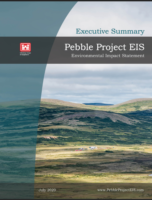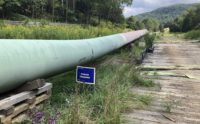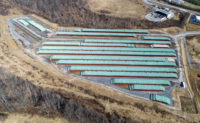The U.S. Army Corps of Engineers on Jan. 6 released its final version of revised rules for water crossing impacts at multiple project sites under its Nationwide Permit, with modifications it says clarify requirements and reduce burdens on the regulated public.
The final rules have yet to be published in the Federal Register and have no effective date nor expiration date. They amend the controversial NWP 12 permit to only authorize oil and natural gas pipelines and add four permit categories to cover other types of project activity.
Two proposed new NWPs would authorize activities associated with the construction, maintenance, repair, and removal of electric utility and telecommunication lines, as well as utility lines that convey water, sewage, and other substances.
Another new NWP would authorize discharges of dredged or fill material into jurisdictional waters for the construction, expansion, and maintenance of water reuse and reclamation facilities.
The revisions would be published in the Federal Register “in coming weeks,” the Corps says. Until then, all current NWPs remain in effect. Unchanged NWPs retain their March 2022 rule expiration date.
“What’s most striking about this announcement is that there will now be two groups of Nationwide Permits with different expiration dates and different general conditions,” Sam Collinson, a senior advisor at policy consultant Dawson & Associates and former chief of the Corps policy development section. He was responsible for developing Corps regulations covering NWP programs for 20 years.
The Corps typically tries to avoid staggered expirations, he told ENR. The date changes could create confusion for projects authorized by multiple NWPs having different general conditions and expiration dates.
The decision to stagger the dates could also address anticipated delays from the upcoming change in administration, Collinson says. “I expect that the Corps will seek to synchronize the expiration dates and general conditions in the future,” he says.
The decision to have unchanged NWPs continue to expire in 2022 rather than the date of the now final revision appears to be the main change from the proposed rule issued in September, says Jon Devine, director of the Natural Resources Defense Council’s federal water policy team.
The environmenal group's main concern is that changes lack scientific justification and threaten important waterways, says Devine. Previously permits were banned from affecting more than 300 feet along streams, but the new rule changes the amount of affected area to number of acres.
“No meaningful analysis of the impact of the change was done to show that the harm is minimal,” Devine told ENR, adding that it will be easier to destroy long sections of narrow streams.
Asking the Biden administration to roll back the changes to the NWPs is high on NRDC’s list of priorities, says Devine. “We’re looking at all options for rollbacks,” he says






Post a comment to this article
Report Abusive Comment